Monthly archives: March 2022
Heartbeat: Wave goodbye to… Luis and Elzbieta Zulueta
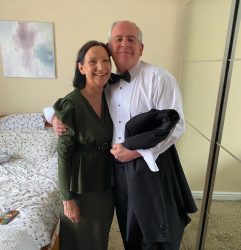
After a combined 70 years at the Trust, husband and wife of 24 years, Luis and Elzbieta Zulueta will be retiring from SWB together.
Dr Luis Zulueta first joined SWB in June 1990 as an Anaesthetic SHO.
“I initially stayed at SWB for three years until 1993 but then after a couple of years returned to the Trust in 1995 as a clinical assistant,” said Luis.
Luis has worked his way through the ranks during his three decade career going from SHO, registrar, clinical assistant and staff grade to eventually becoming an associate specialist in anaesthetics.
“Time goes very fast when you like what you do which is why I stayed at SWB to progress my career. I have always kept in mind that patient care is the most important factor when treating anyone which is why I have enjoyed my time at the Trust.”
In addition to this, he also expanded into teaching and since 2003 is still teaching anaesthetics to 4th year medical students. Last year he became the lead for teaching this group of students.
Luis Zulueta’s wife, known to her peers as Liz, first joined us back in September of 1980 where she was training to become a registered nurse at our nurse’s training school.
“Things were a lot different then. For starters, what now is known as the medical education centre and library, back in the 80s was the nurse’s training school,” said Liz.
“In 1984 I worked for around five months at Health Lane Hospital on the chest ward before spending the next 20 years working in theatres as theatre sister covering all specialities from anaesthetics and recovery to general surgery and colorectal/vascular as well as training students and new members of staff.”
During those 20 years, Liz gained an array of qualifications including diplomas in therapeutic massage, anatomy and physiology in massage, holistic massage and Otological nursing. In 2004, she completed an MSc in advanced nursing practice at Birmingham City University and also trained as a non-medical prescriber. She also trained at Greenwich University for her current role as a surgical care practitioner.
Through working in colorectal and general surgery she has performed minor surgery (lumps and bumps) and consults patients in the rectal clinics in out-patients and arranges investigations and treatment. In addition to this she has also taught many medical students and junior doctors on how to scrub, don and doff theatre gowns and gloves as well as how to suture. She taught nurses to examine abdomens (as part of their advanced training).
“I’ve seen a lot of changes throughout my career such as new developments in surgery, advances in technology but the thing that hasn’t changed is the care that the staff give to patients and each other. It is still of a high standard which became more apparent during the COVID-19 pandemic. I’ve made a lot of friends throughout my career, some of which have retired, some of which have sadly died but I’ve got such wonderful memories I will be taking with me and I feel proud to have been part of a great Trust.”
When asked about challenges she has faced Liz said: “I was one of a group of 11 nurses from Sandwell and City hospital to train for the surgical care practitioner role I do now. This role was new to the country and overstepped the boundaries of nursing practice into the medical field.”
She added: “If I was to give anyone any advice who wants to follow a similar career path to mine it would be to be inquisitive, enjoy what you do and always be ready to help. Also, if you have a passion, follow it.”
Luis and Liz first met at Sandwell Hospital theatres where sometimes they would work together but got to know each other outside of work during theatre nights out. Eventually they got married in May, 1997. Their two daughters were born at Sandwell Hospital and now they will both be retiring together.
As part of their retirement, Luis and Liz are planning on spending more time with their children as well as going on many holidays across Great Britain and Europe.
Happy retirement Mr and Mrs Zulueta!
COVID-19 Bulletin: Thursday 31 March
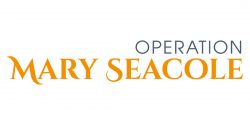
Numbers not statistics: This week (last week)
| Colleagues who have received COVID-19 1st Vac. | Colleagues who have received COVID-19 2nd Vac. | Colleagues who have received COVID-19 booster Vac. | Current number of confirmed COVID-19 inpatients | COVID-19 inpatients not vaccinated against COVID-19 | Total number of our patients who have died from COVID-19 |
| 90.13%
(91.96%) |
85.87%
(86.48%) |
57.42%
(55.09%) |
58
(52) |
56.9%
(36.54%) |
1,502
(1,499) |
1.New: Living with COVID-19: Patient testing
Free COVID-19 testing for the general public ends tomorrow (Friday 1 April) as part of the government’s ‘Living with COVID’ plan.
Guidance has been released detailing how patient testing will operate from 1 April. We are now working through a plan to implement the new guidance therefore for the time being, please continue with our usual processes, with the below additional changes.
From 1 April, these changes will be implemented
Women admitted to a labour ward or setting should be tested as soon as is practical at the hospital site using PCR or rapid tests. Their birth partners will not be tested.
Visitors to hospital (including women and their birth partners attending for routine antenatal care, and end of life visitors) should not be tested.
Note: The Trust has a supply of lateral flow tests (LFT’s) that we are using for elective patients prior to having a planned procedure as well as for patients in paediatrics and maternity. Staff who don’t have LFT and are testing to confirm they are clear to return to work or are symptomatic and need to test to attend work can also access the LFT. They are not available for staff routine testing which should be applied for as stated in item 2 below. You can access Trust lateral flow tests by either:
- City – contact sukhpreet.doal@nhs.net or carl.steventon@nhs.net who will arrange for the tests to be available for collection from receipts and distribution, or advise when the tests are available to be collected by Transport for deliveries offsite.
- Sandwell – This will continue via the community contact centre, ground floor, Hallam building.
You can find out more about the government’s Living with COVID plan here.
2. New: PCR confirmation no longer required to confirm a positive lateral flow – how to apply for lateral flow tests
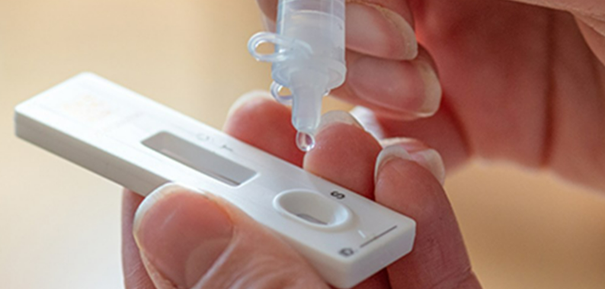
Colleagues are no longer required to confirm a COVID positive lateral flow result with a PCR, a move that comes as we learn to live alongside COVID-19. In our efforts to keep the virus at bay, it’s important that we continue to test and report in order to keep others safe.
All colleagues are required to complete a lateral flow test twice a week before coming in to work. Lateral flow tests are free to NHS staff. You can order your lateral flow kit by visiting https://www.gov.uk/order-coronavirus-rapid-lateral-flow-tests. You will be prompted to set up an account using your NHS email address. Once set up please select “Sandwell and West Birmingham Hospitals NHS Trust” from the list and continue to place your order.
Note: To submit results, colleagues will be required to create an account using their NHS email and password. If you test positive, you should continue to follow the current return to work guidance.
All completed lateral flow tests must be reported on the Trust Lateral Flow Test reporting form which can be found by clicking here.
Colleagues are reminded that any unused LAMP test bags and sample containers can be returned to the phlebotomy departments on each site.
3. New: Change to bank rates: Enhanced rates no longer in place for shifts booked from 6 April 2022
In July 2021 we temporarily introduced enhanced bank rates to support specialist departments and wards in being able to continue delivering safe patient care at a time when the pandemic had resulted in many services having to expand rapidly to meet the needs of seriously ill patients.
Enhanced bank rates were paid to colleagues working in the following areas:
- Emergency departments
- Critical care
- Theatres
- Neonates
- Maternity
- Respiratory hub
- AMUs
- Newton 1
In the first few months of 2022 we have seen a decrease in the numbers of patients with COVID-19 requiring hospital admission and are slowly returning to pre-pandemic activity and numbers.
From Wednesday 6 April the temporary enhanced bank rates will no longer be in place:
- Any colleagues that have already booked shifts in April to work in the above listed departments will still be paid at the enhanced rate.
- From Wednesday 6 April, any new shift bookings will revert to the new bank rate of £25.50. This rate covers any shift (including those in specialist areas) from band 5 and above.
We would like to thank all of our colleagues for their hard work and ongoing contribution to ensuring we can deliver safe patient care at what has been a very difficult time. If anyone has any individual queries with bookings, agreed rates etc. in relation to the enhanced rates please contact the Trust Bank team who will be able to help with any questions about bookings and rates.
The Trust bank team can be reached on 0121 507 3600 or swb-tr.trustbankrequest@nhs.net
4. New: Has your patient tested positive for COVID-19? Introducing the COVID Care Coordinator
Delivering effective care and treatment to patients is of great importance to the Trust, and for those patients who test positive for COVID-19, there is a designated COVID Care Coordinator in post to support their treatment. Jodie Brown has taken up post of COVID Care Coordinator whose role is to monitor COVID-19 positive patients across the Trust and supports clinicians to make decisions regarding their treatment pathway. Jodie along with the Medical Infusion Suite is also available to support with the administration of nMABs.
Jodie said: “The aim of my new role is to identify and assess inpatients with the onset of acute symptomatic hospital acquired COVID-19 and to streamline the process for the delivery, the care and treatment to those patients.
“I will also support the medical, nursing and pharmaceutical teams navigate the rapidly changing pathways and guidelines to make clinical decisions, which impact favourably on patient prognosis. I am looking forward to making a positive impact or imprint on this new phrase of living with COVID-19, especially for those most vulnerable in society.”
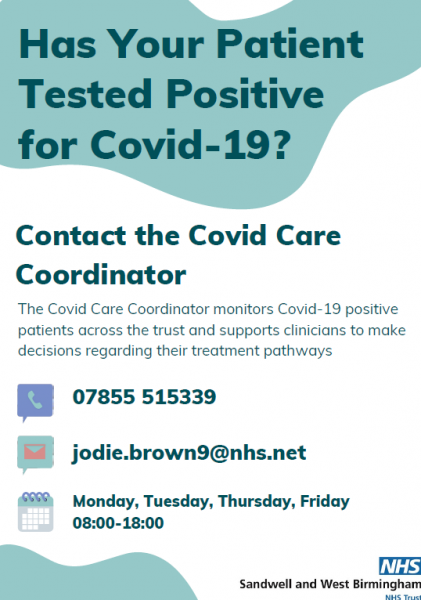
5. New: Changes to Medical Certificate of Cause of Death form and cremation forms
Following the expiration of the Coronavirus legislation on 25 March 2022, some changes have been retained on a permanent basis but all other processes will now need to revert back to previous practice (prior to Coronavirus Act 2020).
Please note the following changes to the way Medical Certificate of Cause of Death(MCCDs) and cremation forms are issued:
Only a medical practitioner who has attended the deceased for their last illness and can state the cause of death to the best of their knowledge and belief will be allowed to complete a MCCD.
The attending medical practitioner would need to have seen the deceased up to 28 days before death (prior to Coronavirus Act this was 14 days but now remains at 28 days) or viewed the body in person after death.
The requirement to complete a confirmatory medical certificate (form Cremation 5) was temporarily removed by the Coronavirus Act. It is the government’s intention that it will not be re-introduced.
An attending medical practitioner will be able to complete the form Cremation 4 if they saw the deceased (including visual/video consultation) within 28 days before death, or viewed the body in person after death (including for verification).
Further guidance and updated information about the easements can be accessed via the following links:
http://myconnect.swbh.nhs.uk/wp-content/uploads/2022/03/MCCD-flowchart-2022.pdf?x18714
6. Reminder: There’s still time to grab a jab
There’s no doubt the vaccination programme has contributed greatly to building a barrier against COVID-19 across the population. The country as a whole now has stronger protection against COVID-19 and we are now able to focus on how we move forward and manage the virus as part of the government’s living with COVID plan. Thank you to those who have already received your vaccinations. There is still time to get vaccinated, whether that’s your first, second or booster vaccination.
We are also now offering COVID-19 boosters for the over-75s and those with a weakened immune system at our vaccinations sites.
The vaccination hubs are open daily at City and Tipton and no appointment necessary – you can just drop in.
Here are current opening hours:
| Tipton Sports Academy Vaccination Centre (*walk-ins) | City, Sheldon Block (*walk-ins) |
| 8am – 7pm (*6pm) | 8am – 7pm (*6pm) |
7. Reminder: In place to keep us safe: Infection control measures
Infection control measures are in place to keep us safe. We are expecting some updates to national guidance around infection prevention and control in the NHS. This may include changes to our social distancing arrangements that we will review when the guidance is received. For the present time, please continue to follow our existing IPC guidance which includes:
Social distancing:
Please continue to abide by social distancing measures to keep a minimum of 1 metre between you and those around you at all times, including when you go for breaks and lunch.
Face coverings and masks:
Colleagues and patients are also required to ensure they wear masks in communal areas in our hospital buildings and in rest areas. Colleagues are reminded to ensure they follow the correct PPE guidance when in direct contact with patients (on red and amber wards). You must also follow your individual risk assessment for PPE. Occasionally this will recommend a higher level of protection depending on your individual assessment.
Hand washing:
This is an essential part of infection, prevention and control. All colleagues must wash their hands or use hand sanitiser on entering and exiting clinical areas.
Bare below the elbow:
Please ensure that you are bare below the elbow whilst in clinical areas. This means your sleeves must be rolled up and any wrist jewellery should be removed, prior to entering the area.
Coats and bags:
Outdoor coats should be removed prior to entering a clinical area and should be placed, along with bags in lockers. They should not be taken into the main ward area. Handbags should not to be taken on ward rounds.
If you need further advice you can contact the infection control team on ext. 5900 or email swb-tr.SWBH-Team-InfectionControl@nhs.net.
8. Reminder: Working from home guidance
As we now move into a period of living with COVID we are reviewing the working from home policy which is now under consultation with trade union colleagues. We will share the new policy with you once it is approved.
In the meantime please continue to follow the current guidance which is available on Connect.
Inpatients ultrasound requests changing at Sandwell from 4 April
All inpatients ultrasound appointments are being coordinated by the colleagues who work in the room from Monday 4 April. This means if you need to speak to anyone regarding a patients scan going forward from today, please contact the ultrasound room directly on ext. 3693.
Note: Please can colleagues continue to make requests in the normal manner prior to this change.
Change to bank rates: Enhanced rates no longer in place for shifts booked from 6 April 2022
In July 2021 we temporarily introduced enhanced bank rates to support specialist departments and wards in being able to continue delivering safe patient care at a time when the pandemic had resulted in many services having to expand rapidly to meet the needs of seriously ill patients.
Enhanced bank rates were paid to colleagues working in the following areas:
- Emergency departments
- Critical care
- Theatres
- Neonates
- Maternity
- Respiratory hub
- AMUs
- Newton 1
In the first few months of 2022 we have seen a decrease in the numbers of patients with COVID-19 requiring hospital admission and are slowly returning to pre-pandemic activity and numbers.
From Wednesday 6 April the temporary enhanced bank rates will no longer be in place:
- Any colleagues that have already booked shifts in April to work in the above listed departments will still be paid at the enhanced rate.
- From Wednesday 6 April, any new shift bookings will revert to the new bank rate of £25.50. This rate covers any shift (including those in specialist areas) from band 5 and above.
We would like to thank all of our colleagues for their hard work and ongoing contribution to ensuring we can deliver safe patient care at what has been a very difficult time. If anyone has any individual queries with bookings, agreed rates etc. in relation to the enhanced rates please contact the Trust Bank team who will be able to help with any questions about bookings and rates.
The Trust bank team can be reached on 0121 507 3600 or swb-tr.trustbankrequest@nhs.net.
Updated policy: Treatment Escalation Plan (TEP) Incorporating Do Not Attempt Cardiopulmonary Resuscitation (DNACPR)
The Treatment Escalation Plan (TEP) Incorporating Do Not Attempt Cardiopulmonary Resuscitation (DNACPR) has recently been updated. All clinical colleagues should be aware of the policy change, however please familiarise yourself with policy if you haven’t already done so by clicking here.
A summary of the changes can be found below:
- Changes in policy reflect minor changes and current practice due to documentation methods in our electronic patient record, Unity.
- Changes within Supportive Care Plans
- Changes in ACCP and end of life practitioners who can initiate changes in TEP and Resuscitation Status if trained to do so.
For more information please email dawnmartin3@nhs.net.
Job of the week: senior HCA apprentice role

Are you an experienced level 2 health care support worker with an interest in undertaking your Senior Healthcare Support Worker Level 3 award?
We have a fabulous opportunity within the dermatology team at City for a 32 hour per week senior healthcare assistant to join our level 3 Senior Heatlhcare Support Worker apprenticeship programme (the qualified role is an NHS agenda for Change band 3).
To apply for the role please click here.
If you are interested in this or any other development through an apprenticeship programme call 0121 507 6425 or email swbh.apprenticeship@nhs.net.
Check out the latest edition of Heartbeat!
 In the March edition we announce the opening of nominations for our Star Awards which open on Monday 4 April. Make sure you put a nomination in for your colleagues who have gone above and beyond this year.
In the March edition we announce the opening of nominations for our Star Awards which open on Monday 4 April. Make sure you put a nomination in for your colleagues who have gone above and beyond this year.
We also cover:
- Why some people get more ill from COVID-19 than others
- The launch of the values campaign ‘2minutes2’
- Meet our cultural ambassadors
- Garden of Gratitude at Midland Met
Do you have a submission for Heartbeat? Email lauren.jones104@nhs.net with your news, stories and achievements to feature in a future edition or call us on ext. 5303.
Occupational health closure today
The occupational health department is closed today (Thursday 31 March). All needle stick injuries should go to A&E and report to the department the following day.
We apologise for any inconvenience this may cause.
Understanding, Screening and Treating Sepsis
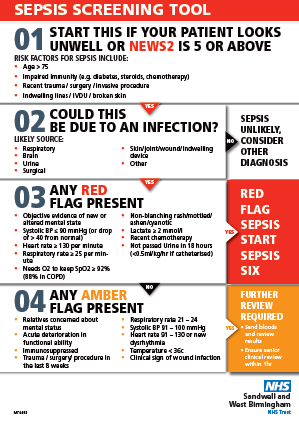 Sepsis is a condition caused by the body’s immune system responding abnormally to an infection, which can lead to tissue damage, organ failure, and death. The infection can start anywhere in the body; it may be only in one part, or it may be widespread.
Sepsis is a condition caused by the body’s immune system responding abnormally to an infection, which can lead to tissue damage, organ failure, and death. The infection can start anywhere in the body; it may be only in one part, or it may be widespread.
The immune system usually works to fight any germs (bacteria, viruses, fungi), or to prevent infection. However, for reasons not yet fully understood, sometimes the immune system goes into overdrive and starts to attack our organs and other tissues. It can happen as a response to any injury or infection, anywhere in the body. It can result from:
- a chest infection causing pneumonia
- a urine infection in the bladder
- a problem in the abdomen, such as a burst ulcer or a hole in the bowel
- an infected cut or bite
- a wound from trauma or surgery
- a leg ulcer or cellulitis
Sepsis can be caused by a huge variety of different germs, like streptococcus, e-coli, MRSA or C diff. Most cases are caused by common bacteria, which normally don’t make us ill.
Spotting sepsis in patients can at times be difficult due to the symptoms being similar to many other conditions, but following a few simple screening rules can significantly improve detection and treatment times.
[su_box title="Red flag criteria indicating high risk of deterioration" box_color="#af0c00"]- Objective evidence of new or altered mental state
- Systolic BP ≤ 90 mmHg (or drop of > 40 from normal)
- Heart rate ≥ 130 per minute
- Respiratory rate ≥ 25 per minute
- Needs O2 to keep SpO2 ≥ 92% (88% in COPD)
- Non-blanching rash/mottled/ashen/cyanotic
- Lactate ≥ 2 mmol/l
- Recent chemotherapy
- Not passed Urine in 18 hours (<0.5ml/kg/hr if catheterised)
[/su_box] [su_box title="Applying the Sepsis six care bundle" box_color="#910a00"]
Once sepsis has been detected, applying the sepsis six care bundle within 60 minutes can double your patients chance of survival:
- Give high flow oxygen
- Take blood cultures
- Give IV antibiotics
- Give a fluid challenge
- Measure lactate
- Measure urine output
[/su_box]
Colleagues who are unsure of the sepsis screening processes are encouraged to speak to their ward matrons or contact the deteriorating patients and resus team on ext. 5908.
Colleagues can refer to the Sepsis Screening Tool to help them identify patients at risk of deterioration. Further information on the management of Sepsis in adults can be found here Management of Sepsis in Adults – SWBHCAG029a
Changes to Medical Certificate of Cause of Death form and cremation forms
Following the expiration of the Coronavirus legislation on 25 March 2022, some changes have been retained on a permanent basis but all other processes will now need to revert back to previous practice (prior to Coronavirus Act 2020).
Please note the following changes to the way Medical Certificate of Cause of Death(MCCDs) and cremation forms are issued:
- Only a medical practitioner who has attended the deceased for their last illness and can state the cause of death to the best of their knowledge and belief will be allowed to complete a MCCD.
- The attending medical practitioner would need to have seen the deceased up to 28 days before death (prior to Coronavirus Act this was 14 days but now remains at 28 days) or viewed the body in person after death.
- The requirement to complete a confirmatory medical certificate (form Cremation 5) was temporarily removed by the Coronavirus Act. It is the government’s intention that it will not be re-introduced after the expiry date.
- An attending medical practitioner will be able to complete the form Cremation 4 if they saw the deceased (including visual/video consultation) within 28 days before death, or viewed the body in person after death (including for verification).
Further guidance and updated information about the easements can be accessed via the following links:
http://myconnect.swbh.nhs.uk/wp-content/uploads/2022/03/MCCD-flowchart-2022.pdf?x18714
← Older items